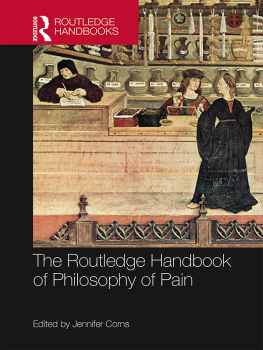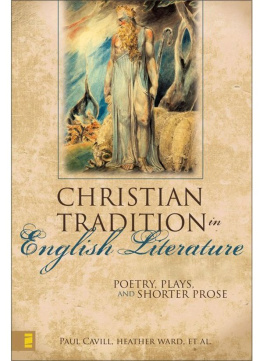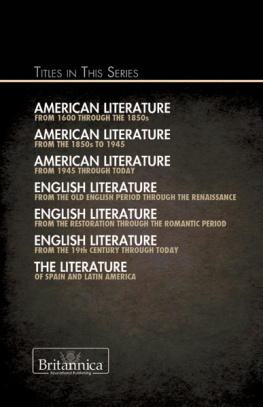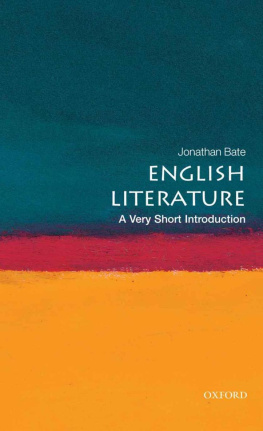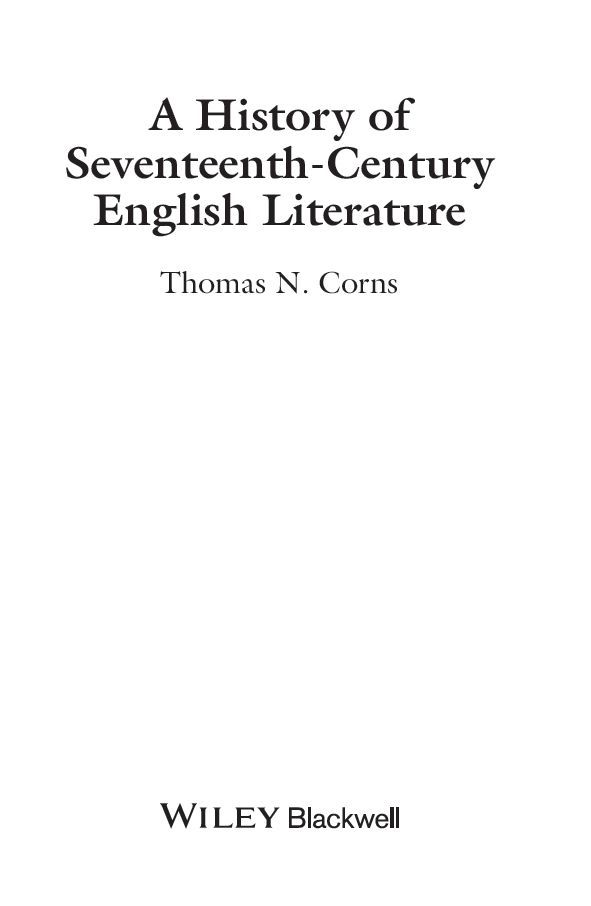
BLACKWELL HISTORIES OF LITERATURE
General editor: Peter Brown, University of Kent, Canterbury
The books in this series renew and redefine a familiar form by recognizing that to write literary history involves more than placing texts in chronological sequence. Thus the emphasis within each volume falls both on plotting the significant literary developments of a given period, and on the wider cultural contexts within which they occurred. Cultural history is construed in broad terms and authors address such issues as politics, society, the arts, ideologies, varieties of literary production and consumption, and dominant genres and modes. The effect of each volume is to give the reader a sense of possessing a crucial sector of literary terrain, of understanding the forces that give a period its distinctive cast, and of seeing how writing of a given period impacts on, and is shaped by, its cultural circumstances.
Published to date
Seventeenth-Century English Literature | Thomas N. Corns |
Victorian Literature | James Eli Adams |
Old English Literature, Second Edition | R. D. Fulk and Christopher M. Cain |

This paperback edition first published 2014
2014 Thomas N. Corns
Edition history: Blackwell Publishing Ltd (hardback, 2007)
Registered Office
John Wiley & Sons, Ltd, The Atrium, Southern Gate, Chichester, West Sussex,
PO19 8SQ, UK
Editorial Offices
350 Main Street, Malden, MA 02148-5020, USA
9600 Garsington Road, Oxford, OX4 2DQ, UK
The Atrium, Southern Gate, Chichester, West Sussex, PO19 8SQ, UK
For details of our global editorial offices, for customer services, and for information about how to apply for permission to reuse the copyright material in this book please see our website at www.wiley.com/wiley-blackwell.
The right of Thomas N. Corns to be identified as the author of this work has been asserted in accordance with the UK Copyright, Designs and Patents Act 1988.
All rights reserved. No part of this publication may be reproduced, stored in a retrieval system, or transmitted, in any form or by any means, electronic, mechanical, photocopying, recording or otherwise, except as permitted by the UK Copyright, Designs and Patents Act 1988, without the prior permission of the publisher.
Wiley also publishes its books in a variety of electronic formats. Some content that appears in print may not be available in electronic books.
Designations used by companies to distinguish their products are often claimed as trademarks. All brand names and product names used in this book are trade names, service marks, trademarks or registered trademarks of their respective owners. The publisher is not associated with any product or vendor mentioned in this book.
Limit of Liability/Disclaimer of Warranty: While the publisher and author have used their best efforts in preparing this book, they make no representations or warranties with respect to the accuracy or completeness of the contents of this book and specifically disclaim any implied warranties of merchantability or fitness for a particular purpose. It is sold on the understanding that the publisher is not engaged in rendering professional services and neither the publisher nor the author shall be liable for damages arising herefrom. If professional advice or other expert assistance is required, the services of a competent professional should be sought.
Library of Congress Cataloging-in-Publication Data
Corns, Thomas N.
A history of seventeenth-century English literature / Thomas N. Corns.
p. cm.(Blackwell histories of literature)
Includes bibliographical references and index.
ISBN-13: 978-0-631-22169-2 (cloth) ISBN 978-1-118-65252-7 (pbk.)
1. English literatureEarly modern, 15001700History and criticism.
2. Great BritainIntellectual life17th century. I. Title. II. Series.
PR431.C67 2007
820.9004dc22
2006004745
A catalogue record for this book is available from the British Library.
Cover image: Detail of English turkey-work carpet, early 17th century. Knole, Kent; Photo
National Trust Photo Library/Andreas von Einsiedel
To Pat, for even more patience
List of Illustrations
: | Ben Jonson, The Workes of Benjamin Jonson (1616), portrait frontispiece and title page. |
: | Michael Drayton, Poly-Olbion (1612), title page and facing text. |
: | Michael Drayton, Poly-Olbion (1612), map of Carnarvanshire. |
: | William Shakespeare, Mr. William Shakespeares Comedies, Histories, & Tragedies (1623), portrait frontispiece and titlepage. |
: | Francis Quarles, Emblemes (1635), Emblem X. |
: | George Wither, A Collection of Emblemes (1635), pp. 45. |
: | John Milton, Poems (1645), portrait frontispiece and title page. |
: | John Dryden, The Works of Virgil (1697), frontispiece and title page. |
: | John Dryden, The Works of Virgil (1697), a plate from the Aeneid. |
Preface
This is a history of English literature in the seventeenth century. It covers writing in English in England and Wales. Writing in English in Scotland and Ireland, like new composition in Latin, figures only marginally, where it relates to or illuminates the principal subject. Literatures produced in the other languages of Britain and Ireland are not considered, because they are both beyond my remit and outside my competence.
Other decisions in the selection or omission of texts are less clear-cut. Those authors who currently are most read and studied receive most attention. I have added some non-canonical works to throw light on the mainstream, together with some which, in my view, have literary merit that has been overlooked. Writers who were once influential or were otherwise perceived as important in their own day are generally included, even though they have substantially fallen from the canon. Translation, particularly from the classical languages, was a significant component of the seventeenth-century experience of literature. Here my treatment is selective and perhaps somewhat arbitrary, though works which proved influential, like Sylvesters rendition of Du Bartas, are included. Drydens late, glorious translations seemed too good and too important a component of his oeuvre to omit. Populist genres such as ballads or works of popular piety for the most part are drawn on only as part of the larger cultural context. Writers in other genres outside those that are typically considered literary appear intermittently. Francis Bacon and Thomas Sprat, who have often figured in critical histories of non-fictional prose, are engaged with in literary terms; Thomas Hobbes and John Locke, despite their higher status as thinkers, are not considered, except as influences on or analogues to other writers. Though both write with persuasive power, their principal genius rests in their contribution to the tradition of western philosophy, and a proper appreciation of their work would have carried me beyond the concerns of literary history.
Next page

